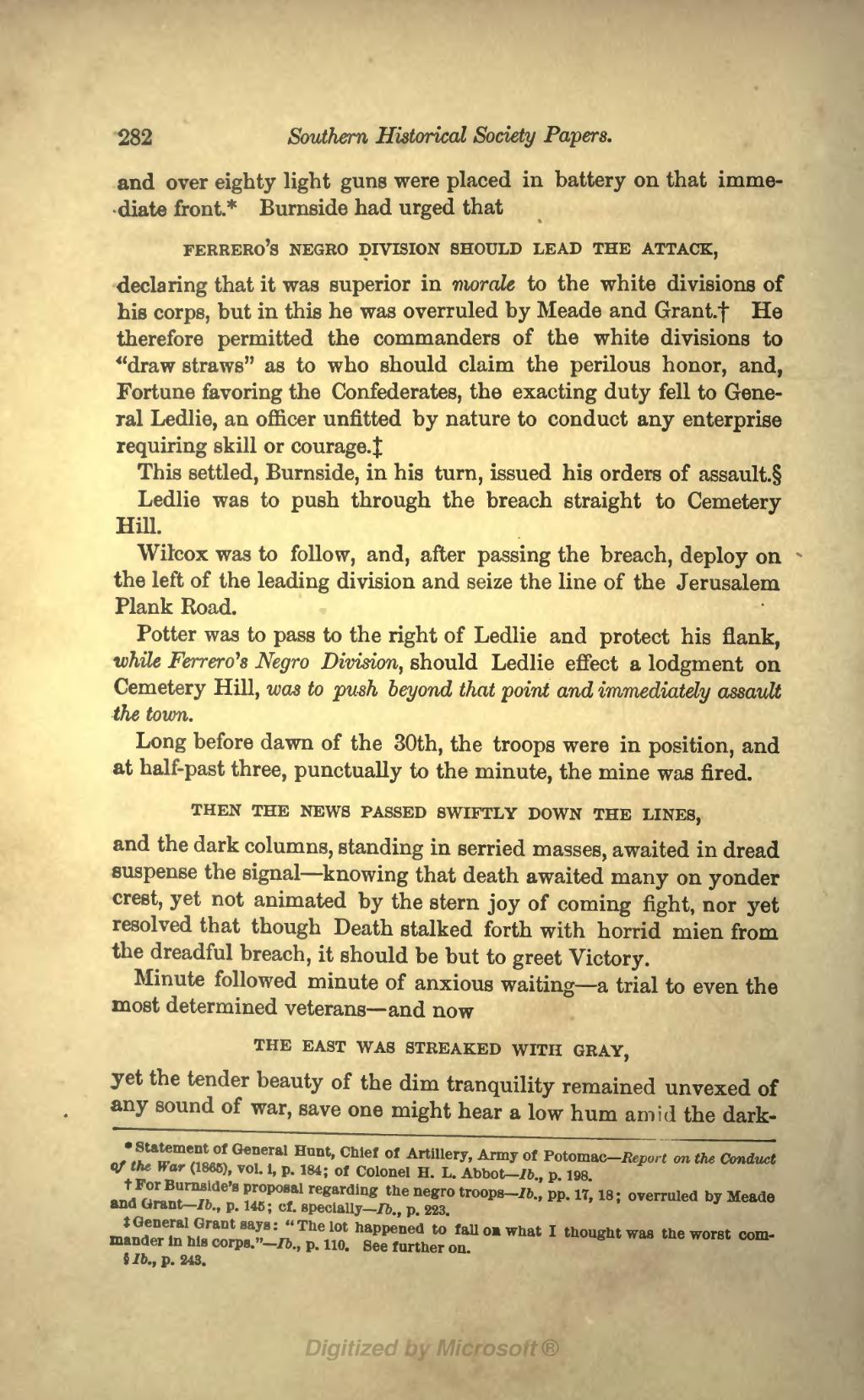and over eighty light guns were placed in battery on that immediate front.[1] Burnside had urged that
FERRERO'S NEGRO DIVISION SHOULD LEAD THE ATTACK,
declaring that it was superior in morale to the white divisions of his corps, but in this he was overruled by Meade and Grant.[2] He therefore permitted the commanders of the white divisions to "draw straws" as to who should claim the perilous honor, and, Fortune favoring the Confederates, the exacting duty fell to General Ledlie, an officer unfitted by nature to conduct any enterprise requiring skill or courage.[3]
This settled, Burnside, in his turn, issued his orders of assault.[4]
Ledlie was to push through the breach straight to Cemetery Hill.
Wilcox was to follow, and, after passing the breach, deploy on the left of the leading division and seize the line of the Jerusalem Plank Road.
Potter was to pass to the right of Ledlie and protect his flank, while Ferrero's Negro Division, should Ledlie effect a lodgment on Cemetery Hill, was to push beyond that point and immediately assault the town.
Long before dawn of the 30th, the troops were in position, and at half-past three, punctually to the minute, the mine was fired.
THEN THE NEWS PASSED SWIFTLY DOWN THE LINES,
and the dark columns, standing in serried masses, awaited in dread suspense the signal—knowing that death awaited many on yonder crest, yet not animated by the stern joy of coming fight, nor yet resolved that though Death stalked forth with horrid mien from the dreadful breach, it should be but to greet Victory.
Minute followed minute of anxious waiting—a trial to even the most determined veterans—and now
THE EAST WAS STREAKED WITH GRAY,
yet the tender beauty of the dim tranquility remained unvexed of any sound of war, save one might hear a low hum amid the dark-
- ↑ Statement of General Hunt, Chief of Artillery, Army of Potomac—Report on the Conduct of the war (1865) vol. i, p.184; of Colonel H. L. Abbot—Ib., p. 198.
- ↑ For Burnside's proposal regarding the negro troops—Ib., pp.17, 18; overruled by Meade and Grant—Ib., p. 145; cf. specially—Ib., p. 223.
- ↑ General Grant says: "The lot happened to fall on what I thought was the worst commander in the corps."—Ib., p.110. See further on.
- ↑ Ib., p. 243.
